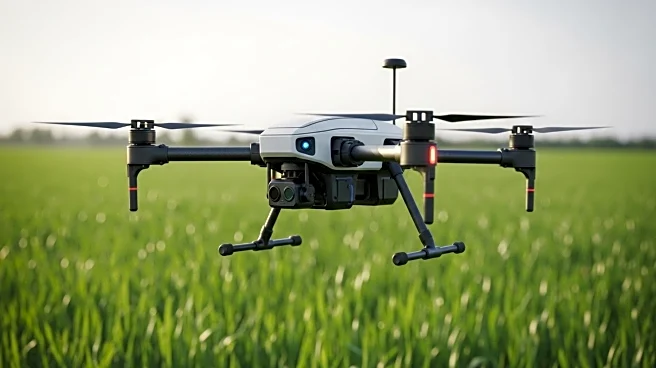What is the story about?
What's Happening?
Artificial intelligence is increasingly becoming integral to the agriculture industry, moving beyond experimental phases to core components of research and development, capital planning, and supply chain strategies. AI is enabling more predictive R&D processes, improving data governance, and evolving into distributed systems that enhance operational efficiencies. This shift is expected to lead to significant mergers and acquisitions as companies compete to secure data platforms and decision-support systems. The integration of AI is also allowing startups to achieve milestones with less capital, fostering market-paced growth and capital efficiency.
Why It's Important?
The integration of AI in agriculture is poised to transform the industry by enhancing efficiency and reducing costs. This technological shift is likely to benefit agribusinesses by shortening time-to-market and improving return on investment. However, it also presents challenges such as the need for robust data governance and potential labor disruptions. Companies that invest in workforce training and adapt to regulatory changes will likely gain a competitive edge. The broader impact includes potential shifts in market dynamics and increased competition among agribusinesses to leverage AI for strategic growth.
What's Next?
In the coming year, AI-native agtech startups are expected to raise significant funding as they accelerate their path to market traction. Corporate pilots are anticipated to transition into full-scale deployments, making AI a standard part of operations across R&D, logistics, and compliance. This evolution is likely to trigger major M&A activity as companies vie for technological and data-driven advantages. The ongoing development of AI in agriculture will require continuous adaptation to regulatory changes and advancements in data management practices.















